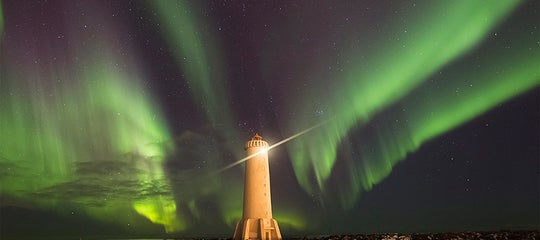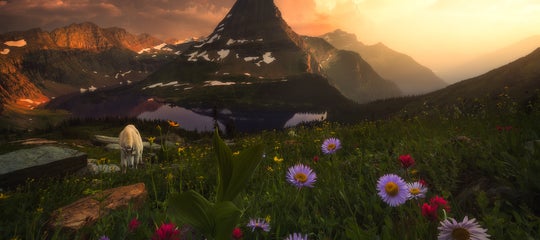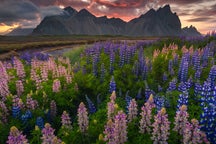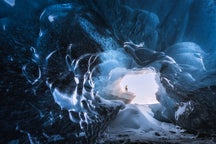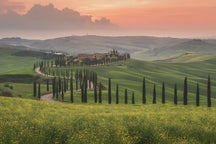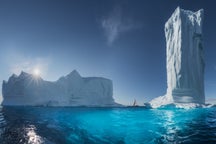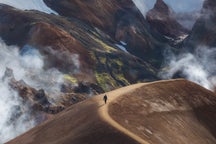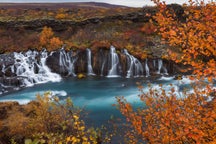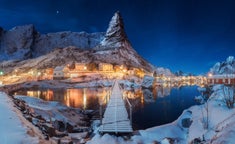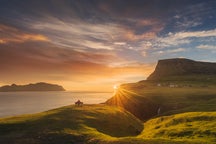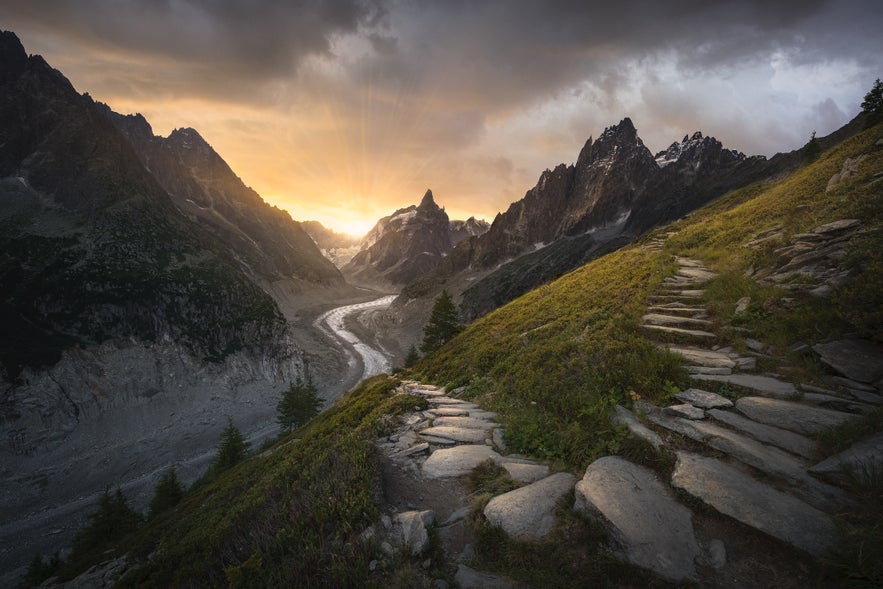
Italian photographer, Nico Rinaldi, is as talented as they come. His stunning portfolio of landscape photography is the masterful finesse of both shooting in-field and in the art of post-processing, demonstrating his extraordinary use of shadow and light.
- Check out these Italy Photo Workshops
- Join us on this Autumn in Dolomites | 7 Day Photo Workshop
- Discover this Ultimate Photography Guide to the Cinque Terre in Italy
It is no surprise then that Nico's work has received critical acclaim, not just in his home country but all over the world. Alongside numerous awards in international photography competitions, he has partnered with leading brands including Benq, Fotopro, Haida Filters and Vallerret.
This week, we had the opportunity to chat with Nico about the difficulties of juggling his passion for photography with a full time job. Nico also discusses the finer points of composition and post-processing, while sharing his thoughts on the need for landscape photographers to learn to respect nature.
 Lost in a Fairytale. Photo by: 'Nico Rinaldi'.
Lost in a Fairytale. Photo by: 'Nico Rinaldi'.
Hello Nico, thank you for joining us this week! First of all, could you please tell us a little bit about yourself? How did you become interested in photography? What was the path you took that ultimately led you into the wonderful world of landscape and travel photography?
I was born and raised in Italy, a country that offers a lot of art and very varied and unique landscapes. Ever since I was a child, I have always been interested in art, considering I chose to study at the artistic high school of the fine arts in Bologna. Thanks to this artistic path, I have developed some skills that allow me to express myself easily through art.
 Alpine Crown. Photo by: 'Nico Rinaldi'.
Alpine Crown. Photo by: 'Nico Rinaldi'.
Before photography, my hobby was to paint, until one day it became important for me to have a camera. At the beginning, I only used it to photograph my paintings and put them online but over time, I started experimenting with the camera and Photoshop, until photography became very interesting for me. I started photographing landscapes, which allowed me to get away from everything and everyone and enjoy nature in total freedom.
Can you describe how your approach to photography is different to that of other photographers?
First of all, I listen to my personal taste to create images that can express my creativity and which encompass my way of making art through photography. I always try to have an idea of the place that I will go to photograph. Once I reach that place, I start looking for a point of view that can best enhance that landscape, paying particular attention to three-dimensionality and depth to create strong images with impact.
Of course, I also trained in the early days by photographing famous and classic landscapes.
You work a lot with time blending – the technique of exposure blending two or more images of a scene which were taken during different times of the day. How did you learn about this technique? Who or what inspires you to create your images in the way that you do?
Usually, when possible, I try to work with single shots but often to create my compositions, I use focus stacking. I also use the time blending technique to make the most of my photographs. Once I have chosen the point of view and created the photo composition, I put myself on hold to photograph the sky and the landscape during the best light situation. To make some of my photographs, I had to go back to the scene for several days, in some cases even the following year if the weather conditions were not favourable. Landscape photography takes a lot of time, practice and dedication.
 Another World. Photo by: 'Nico Rinaldi'.
Another World. Photo by: 'Nico Rinaldi'.
You have a very intriguing style of post-processing, which brings out the drama of shadow and light. Can you share with us a brief overview of your creative workflow? How do you maintain uniformity of style across your images through the fine art process? Do you ever feel the desire to change things up completely?
I take this opportunity to thank you for contacting me for this interview and I also thank all the people who appreciate my photographic style and who constantly support my way of working.
My style comes from my way of seeing and interpreting shapes and colours. When I am in the field, it is really important for me to create compositions with a strong impact. Subsequently, through post-production, I can enhance their three-dimensionality, depth and guidelines.
The next step in the post-production phase is to pay attention to the choice of colours that I call "basic" in order to make them harmonious with each other, then I focus on shadows and lights and contrasts. I always try to model and enhance the light to enhance depth and three-dimensionality.
 Cosmic Stream. Photo by: 'Nico Rinaldi'.
Cosmic Stream. Photo by: 'Nico Rinaldi'.
For me, the separation of the elements is very important. For example, close-up / landscape / sky... in fact, very often it is the elements that I choose to photograph which establish the guidelines for a pleasant reading of the photograph that I am creating. To maintain the uniformity of style, I have not given myself rules or limits to follow; for me, it is really important to create and express myself in total freedom, which gives me the opportunity to have fun when I have to spend many hours in Photoshop. Photography allows me to feel free and I always try to create very dreamy and particular images in order to convey strong emotions.
Honestly, I have never thought about changing my style. It is important for me to enjoy photography in total creative freedom. I don't want to change my style to listen to those who criticise me, nor to make my images more commercial; it is precisely the style that I give to my photographs which allows me to have fun and to enjoy landscape photography.
Tell us a bit about the power of landscape photography. What influence does it have upon how people view nature and the world? Can seeing the beauty of our planet make a positive change to our collective environmental consciousness?
I think that each of us, in our DNA, has a primordial code which allows us to experience emotions and sensations when presented with a particular landscape. Surely, the sight of a wonderful landscape arouses within each of us positive emotions. Nature is powerful in all its forms and establishes the right balance for everything. We are part of this balance, therefore I think that each of us must contribute to respecting nature! Nature gives us life and in return asks only for respect.
 Wild Treasure. Photo by: 'Nico Rinaldi'.
Wild Treasure. Photo by: 'Nico Rinaldi'.
With our photographs, we try to show the power of nature by giving people the opportunity to see unique and special places. Over the years, I think that landscape photography has helped to influence people in a positive way. By showing beautiful, wild landscapes, people can love nature even more.
- See also: What is Landscape Photography?
You have some incredible images of the night sky that you’ve taken all around the world. How does your approach to photographing at night differ from capturing landscapes during the day? Do you enjoy one over the other? Which allows you to express your creativity most effectively?
Night photography is certainly very different from photographing during the day. This totally changes the rules in the field. During the night, my approach in the compositional creation phase does not change much; in fact, I always try to enhance the landscape a lot to create the right atmosphere between it and the starry sky. When possible, I also like to take photographs with the panoramic technique during the night, so as to be able to photograph the complete arc of the Milky Way.
At a technical level, night photography requires more precautions and a lot of individual experience. It is essential to know your equipment well. Having the right knowledge of your camera will allow you to obtain excellent results.
 Dreamy California. Photo by: 'Nico Rinaldi'.
Dreamy California. Photo by: 'Nico Rinaldi'.
Personally, I love both day and night photography but to be honest, between the two, day photography stimulates me more and gives me more emotions. For me, going to the mountains to photograph is a way to escape from the daily routine. The pleasant emotions I feel while exploring landscapes and mountains is what allows me to express my creativity in the most effective way.
- See also: Best Lenses for Night Photography
You spoke a little about the need to respect nature and the places in which we photograph. Do you have a code of conduct that you abide by when photographing in the field? To what lengths do you go to get the perfect shot? How can photographers be more ethical in their approach to photographing landscapes?
Every time before going to a new place, I inquire about the various rules and standards to be respected. This is an important thing that allows me not only to respect the rules of each country but also to respect the environment and preserve it.
My code of conduct to respect nature involves exploring landscapes with the least possible impact. I always try to pay attention to where I put my feet so as not to damage flowers, plants, natural formations, etc. Obviously, I never leave objects and waste. If on the way, I find some garbage abandoned by someone, I collect it and take it with me. I think everyone has a duty to leave the landscape clean and unspoiled.
Could you tell us a little about the companies that you work with? What is your decision-making process when deciding which companies you would like to represent as an ambassador? What stands out about the companies that you’ve partnered with and how are their products of benefit to other photographers?
Over the years, I have had the opportunity to collaborate with some companies specialising in the photographic and outdoor sector.
For more than two years, I have been working with Benq, a leading company in the sector of photographic monitors and dedicated technological accessories. After several tests I was pleasantly satisfied, so I chose to use Benq monitors to create my photographs.
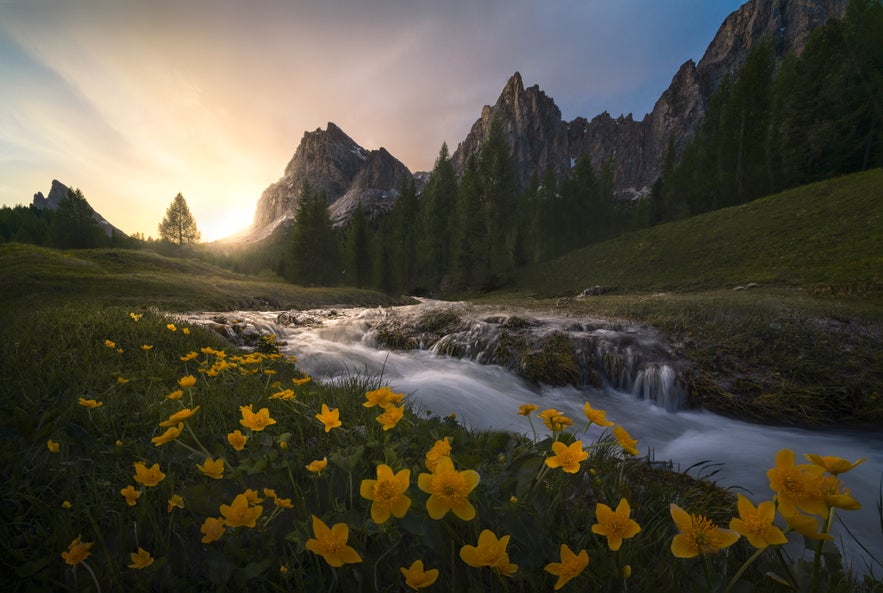 Enchanted Valley. Photo by: 'Nico Rinaldi'.
Enchanted Valley. Photo by: 'Nico Rinaldi'.
For several years, I have been using FOTOPRO tripods and collaborating with their Italian section. As for tripods, my previous experiences with other brands have never satisfied me fully due to various problems. Fotopro has definitively solved my problems. In fact, during my adventures, I have never encountered any defects. Indeed, Fotopro is a security in terms of reliability.
One of my most recent collaborations is with Haida Filters, a prestigious brand that manufactures filter holder systems, photographic filters and dedicated accessories. I tried the new M15 system combined with various filters. After viewing the photos on the PC, I appreciated the performance and quality of these filters. Furthermore, the build quality of the holders and filters is really excellent.
Another company I have been working with for some years is Vallerret, a Norwegian company that produces photographic gloves for the cold seasons. During all of my autumn and spring excursions, I use the Markhof model while for the cold winter, I use the Ipsoot model with satisfaction. These gloves have allowed me to photograph comfortably even in cold weather.
Why did I choose these brands? It is important for every photographer to use reliable and long-lasting equipment that can guarantee excellent performance. After personally testing the products of various brands, I had the opportunity to establish a collaboration with the brands I prefer most! In fact, during every photographic output, workshop or post-production on the PC, I always use the products of my favourite brands with which I am fortunate enough to collaborate.
Often, the choice of equipment that we use is very subjective. From my personal experience, I can say that the brands I work with offer high quality in terms of reliability, build quality, yield in use and durability. In addition, these companies offer excellent customer care and the operators are very friendly and professional.
You have a wonderful collection of images from all around the world, including Iceland, the United States, Patagonia, France, Norway and the Faroe Islands. Which place has been your favourite and what do you like about it most in terms of photography?
It is difficult to answer, as each of the places mentioned offers unique and wonderful landscapes. For my personal taste, the United States is in first place, probably because it offers a great variety of landscapes from the desert to the rocky mountains, rainforest and ocean coasts. But I must admit that Iceland and Patagonia impressed me too, they are truly fascinating and unique!
 Infinite Tangle. Photo by: 'Nico Rinaldi'.
Infinite Tangle. Photo by: 'Nico Rinaldi'.
You host a number of photography workshops around the Dolomites in Italy. What can aspiring photographers hope to learn during one of these tours? Are they physically demanding or can anybody join?
During my workshops, I put all of my experience at the service of the participants. I offer a completely didactic service, in which I explain my workflow in detail. During the field photography sessions, I pay attention to each participant by showing my techniques and making sure to offer everyone the best possible experience. The post-production lessons on the PC take place in comfortable shelters or hotels and everyone has the opportunity to interact during the lesson to ask me questions, which I am always happy to answer.
My workshops are organised in wonderful locations in the Dolomites that I choose not only for their beauty but also to offer customers maximum comfort. In fact, in the immediate vicinity of each location, there is a refuge in which all participants will stay and enjoy restaurant service and other conveniences. The short hikes are very pleasant and simple – physically, they are not very demanding.
- See also: Ultimate Photography Guide to Tuscany
What kind of camera gear or equipment do you generally take out with you on a normal shoot? Is there anything that you’d recommend for other photographers, which has been particularly reliable or useful for you to have in your kit over the years?
For years, I have used Nikon SLR cameras. During my shoots, I always carry with my Nikon D850 combined with a Sony a7S II that I use only for night photography.
The lenses that I use are a Sigma Art 14-24 f2.8, Nikkor 50mm f1.4 and a Nikkor 70-300mm VR.
 Forms of Life. Photo by: 'Nico Rinaldi'.
Forms of Life. Photo by: 'Nico Rinaldi'.
My tripod is by Fotopro. I use different types of tripods according to the need and the place where I will go to photograph. For example, when hiking in the mountains, I bring the light FOTOPRO X-GO with me. To photograph in countries where there are often difficult climatic conditions, such as Iceland or Norway, I use the solid FOTOPRO T-74C.
I also bring along my Haida filters, which consist of a polariser, NA 4 stop, NA 6 stop and NA 10 stops.
Of course, I also wear my Vallerret photo gloves.
Photographic equipment is a subjective choice. The things I would recommend for other photographers are a remote control for long exposures, as well as a levelling and panoramic tripod head. Essentials also include a medical kit, a battery bank for the phone, GPS or a map, good headlight with a spare battery, as well as various tools to repair your own equipment.
- See also: The Best Camera Bags for 2020
Despite having a full time job, you’ve managed to visit and photograph so many places over a significant period of time. How do you juggle work with photography and your personal life? Is it difficult to keep yourself motivated? How do you seek refreshment when you find yourself in a creative block?
I have devoted a lot of time and energy to photography in recent years. It has not been easy for me to manage my work, private life and photography. Every day of the week, I work at the factory and whenever possible, on the weekend, I love to go to photograph the Dolomites mountains that are four hours away from my house. Usually, for three nights a week, I dedicate my time to post-production on Photoshop. Personally, I give great importance to the post-production of my photographs. In recent years, I have also had the opportunity to travel abroad, making one or two trips per year using the holidays granted by my job.
 Green Euphoria. Photo by: 'Nico Rinaldi'.
Green Euphoria. Photo by: 'Nico Rinaldi'.
Honestly, the daily routine often makes me feel tired and unmotivated; however, creativity and passion for photography give me the strength to focus and work on the photos that I have made during my various adventures.
As for creative blocks, I think they are part of the creative process. When I feel stuck, I take a break of several days. This period of inactivity is useful for me, as it gives me the opportunity to start dreaming and planning some new photographic adventures in the mountains. I love the mountains and the power of nature – they give me a pleasant sense of freedom and constantly stimulate my imagination.
What’s the best photography advice that you’ve ever been given? Do you have any advice that you’d like to pass on to photographers just beginning to take an interest in travel and landscape photography?
One of the best tips I've been given is to train the eye, obviously not in the gym! :) Analyse your photos, study the theory of colour, keep practicing in Photoshop until your eyes can better notice the harmonies between coloyrs, contrasts, lights and shadows.
One piece of advice I would like to give is to have no limits on your creativity. Photography is an art form and as such, it requires theoretical study and a good dose of personality. Never let yourself be defeated by those who negatively criticise your work. Keep doing what you like to do and it will give you more satisfaction. Constantly test yourself to improve your results; to have great results, you need a lot of dedication.
What do you see as the new horizons for landscape photography in the future?
This is a question that I have often asked myself during my photographic journey, now that the landscape photography environment is really saturated. It is really difficult to create something new and interesting. Surely, there will still be many little-known and wonderful places to photograph and we will have the opportunity to explore new landscapes all over the world.
 Icelandic Eye. Photo by: 'Nico Rinaldi'.
Icelandic Eye. Photo by: 'Nico Rinaldi'.
In the future, technology will certainly change. Photography will continue to evolve and the way we will view the photographs will also change. I think that in order to stand out, it will always be important to create your own style and to constantly test yourself to convey emotions through photographs.
Thank you for sharing your thoughts with us! Are there any exciting projects that we can expect from you in the coming year?
Thanks to you for this opportunity, it was an honour for me! Honestly, due to this situation with COVID-19, I do not have anything currently planned but I certainly want to start planning in the coming months. Perhaps something interesting for the fall or winter season and next spring.
All the best for you all! See you soon :)
For more information on Nico Rinaldi's work, you can visit his website or find him on Facebook and Instagram.
Get out and about to learn how to use your camera in nature! Check out our range of international photo tours and photography workshops.



